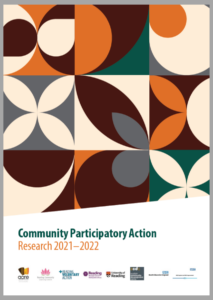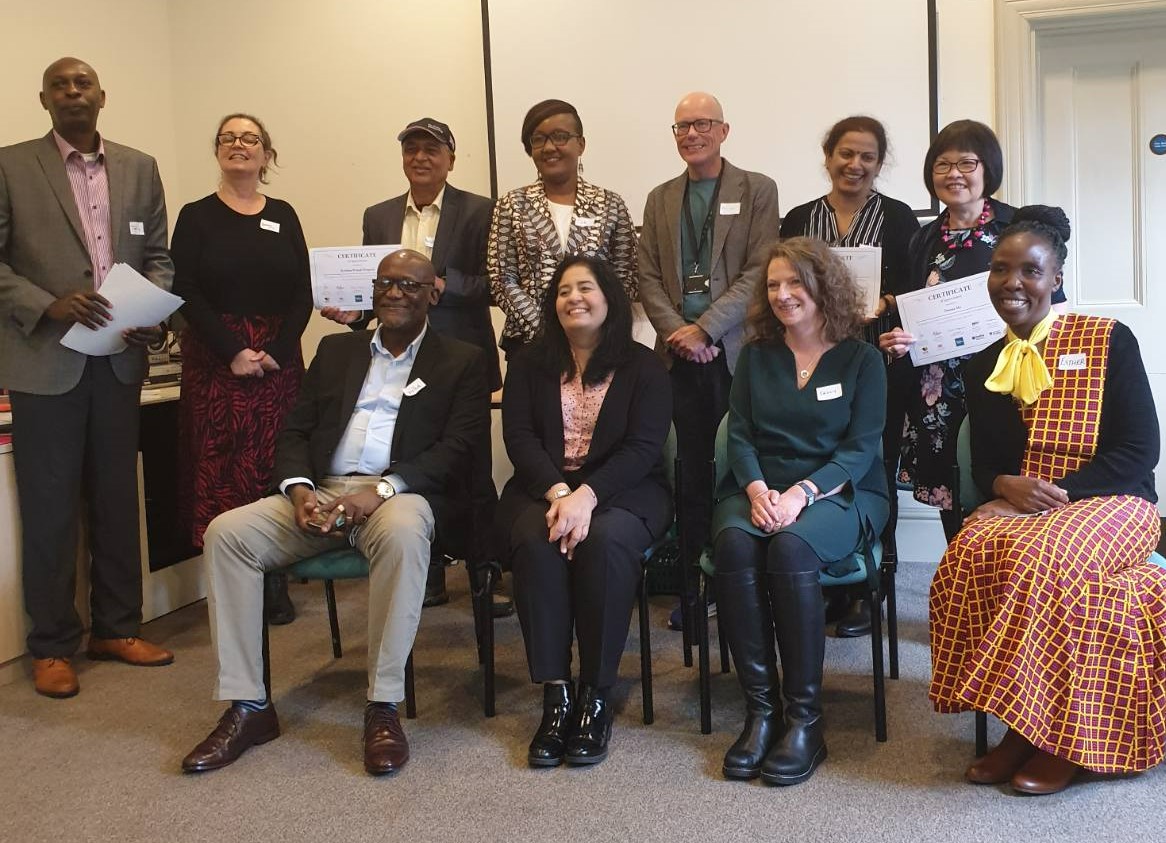A new report offers a series of recommendations for tackling health inequalities in Reading, including improving translation and interpretation services and engaging local community groups as partners in culturally-sensitive service design and delivery.
The recommendations are based on community-led research which evidences the striking inequalities facing minority ethnic people when accessing healthcare in Reading.
The research projects were designed and carried out by five community researchers – Evangeline Karanja, Donna Ma, Hemamalini Sundhararajan, Tariq Gomma and Krishna Neupane – supported by facilitator Dr Esther Oenga. The researchers were trained by the Scottish Community Development Centre in Community Participatory Action Research (CPAR), an approach grounded in principles of equal partnership, collaboration and community action.
Local organisations Reading Borough Council (RBC), Reading Voluntary Action (RVA), the Alliance for Cohesion and Racial Equality (ACRE), Reading Community Learning Centre (RCLC) and the University of Reading’s Participation Lab were the project partners.
The research was made possible by a programme from Health Education England South East which was designed to act on the recommendation from Public Health England’s report in 2020, Beyond the data: understanding the impact of Covid-19 on BAME groups to:
Support community participatory research, in which researchers and community stakeholders engage as equal partners in all steps of the research process, to understand the social, cultural, economic, religious, and commercial determinants of Covid-19 in BAME communities, and to develop readily implementable and scalable programmes to reduce risk and improve health outcomes.

Research summaries
Evangeline Karanja investigated the barriers to accessing maternal healthcare services faced by ethnic minority communities as a result of Covid-19 and digitisation. She interviewed mothers who were pregnant or delivered within 6 months of the pandemic, and midwives, all within the Black ethnic minority, and all fluent English speakers. Barriers identified included women seeing different midwives at every antenatal appointment, feeling that they were not listened to by healthcare professionals, and the cost and availability of antenatal and postnatal classes. Evangeline’s research explored the additional barriers caused by the digitisation of services during the pandemic including internet connectivity and affordability and digital literacy. Midwives reported that staff shortages and language barriers were key challenges when providing maternity care for ethnic minority women.
Donna Ma and Hemamalini Sundhararajan investigated how ethnic minority communities in Reading received and interpreted public health messages during the pandemic, as well as their access to healthcare services. Donna and Hemamalini surveyed and interviewed 103 women aged 25 to 75. The participants came from 24 countries including China, Nepal, Pakistan, Bangladesh, Syria, Poland, India, Russia, South Korea and Kurdistan. Interpretation, arranged by Reading Community Learning Centre, was provided in Tamil, Punjabi, Hindi, Mandarin Chinese, Cantonese, Arabic, Nepalese and Kurdish. Donna and Hema noted that it was a challenge for the participants from countries that have a different healthcare system to understand the questions, even when translated. Their research highlights difficulties faced in accessing GP and other healthcare services, including lack of translated information on services available locally and lack of translation support for appointments face-to-face and on the phone, forcing people to rely on family members for interpretation.
Tariq Gomma focused on the impact of Covid-19 on the mental health of ethnic minority men in Reading. He surveyed 63 men of varying ages and from backgrounds including Sudanese, Nigerian, Bangladeshi, Sierra Leonean, Libyan, Eritrean Ghanaian and Kenyan. 86% of participants in Tariq’s study reported being affected negatively by the pandemic, either financially or psychologically. The research highlights barriers to accessing mental health services including lack of translation and interpretation, difficulties being referred to or seen by mental health practitioners during the pandemic, lack of knowledge about what services are available, institutional racism and lack of cultural sensitivity, and cultural stigma around mental health issues.
Krishna Neupane explored the disproportionate impact of Covid-19 on Nepalese communities in Reading, identifying three major factors: living conditions, including shared housing and financial pressures, communication difficulties such as language barriers and lack of digital skills or access to the internet, and fear, mistrust and vaccine hesitancy. Krishna found that participants tended to have negative perceptions of local NHS services during the pandemic as well as sense of a delayed government response, and for some, the mistrust and fear extended to the Covid-19 vaccination programme. Surveys, interviews and focus groups were conducted in Nepali and then translated into English.
The value of community-led research
Along with the community researcher’s detailed findings and recommendations, the report makes the case for the value of community-led research, including its economic value, and the importance of resourcing it properly. A final section brings together reflections from the researchers and community partners, documenting the collective effort required to accomplish the CPAR project, including unpaid time, additional resources and emotional labour that weren’t reflected in the funding application or original timeline. It also highlights the strengths of this approach. In the words of Aisha Malik, Manager of Reading Community Learning Centre:
The fact that we as a small grassroots charity can use this funding and platform to carry out research and hopefully bring change to the forefront is immensely rewarding and exciting. I hope there is more funding for this type of research empowering communities to be active, vocal participants in bringing local change by getting the decision makers to listen and take note. RCLC are really proud of all the researchers and looking forward to seeing the social changes the report will influence.
- Download the full report: Community Participatory Action Research 2021–2022
- Read more about community-led research in Reading.
Dr Sally Lloyd-Evans is an Associate Professor in Human Geography and Public Engagement with Community Research Fellow at the University of Reading.
Dr Esther Oenga is a Postdoctoral Research Assistant in Participatory Action Research at the University of Reading.

